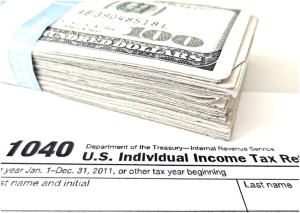Modern day examples of fraud don’t always take the form of mustachioed Ponzi-types with elaborate systems of deception. Today, elusive acts of fraud in the workplace are running rampant, especially throughout small businesses. The ability to commit and get away with fraud has become even more accessible with the increased use of social technologies in the workplace. Tech savvy fraudsters can use anything from Facebook messaging to Snapchat to communicate plans for manipulating company funds in a way that is difficult to detect. If you or your client is suspicious of fraudulent activity in the workplace, it is essential to take the steps necessary to resolve the issue as quickly as possible. The following four steps should be taken to stop any potential fraudulent behaviors: Detection of Potential Fraudulent Activity in the Workplace The two main types of business fraud are (1) inappropriate personal use of business assets and (2) falsifying financial statements. These types of fraud can come in many forms, including but not limited to the following: Embezzlement, Forgery of official documents, Tampering with bank records, Inventory theft, Benefitting from placing a redundant order, Using company credit cards for personal expenses, Selling business assets under the market value, Manipulating the overtime periods, and Creating fictitious expenses and obtaining disbursements. If any of these behaviors are suspected, it is important to investigate. Forensic Investigation Although most employers wouldn’t like to think of their employees as the type to commit fraud, fraudulent behavior is surprisingly prevalent, especially among smaller […]
Blog
We have distilled decades of experience at the intersection of law, business and finance into a suite of articles to help our clients make sense of business valuation, forensic accounting, and litigation support. Please visit our site regularly for our latest content.
Dealing with Fraud: A Simple Four Step System
Posted in Financial Advisory, on Apr 2016, By: Mark S. Gottlieb
ShareValuing Covenants Not to Compete
Posted in Business Valuation, on Feb 2016, By: Mark S. Gottlieb
ShareThe guest on Thursday’s episode of The Daily Show, Airbnb CEO Brian Chesky, explained that value in the American economy is becoming less associated with ownership and more associated with experience. Airbnb has revolutionized travel and hospitality by allowing users to pay to stay in the homes of other users, rather than in hotels. Trevor Noah, the host of The Daily Show, joked that Airbnb and other similar organizations are making ownership obsolete: people no longer need to purchase cars, homes, or, now, pay for hotels. In a serious tone, Chesky explained that this decline in ownership came with an increase in the value of experience. He said that a person’s value is now shown through their Instagram feed rather than the size of their house or worth of their car. Though this shift in value may signify a change in economic ideology, intangible assets, such as experience, have long accounted for a surprisingly substantial amount of a company’s total value. A company’s intangible assets bring value to the business without having a material presence. Essentially, intangibles come from employees’ experiences. Types of Intangible Assets Intangible assets fall under 5 major categories. The following lists these categories and examples of each: Marketing-related intangible assets Trademarks, Logos, and Domain Names. Consumer-related intangible assets Customer information, and Customer relationships. Artistic-related intangible assets Literary/musical/visual art works, and Performance events. Contract-based intangible assets Use rights, Licensing agreements, Franchise agreements, and Employment contracts. Technology-based intangible […]
Mark S. Gottlieb, CPA, a premier business valuation, forensic accounting, and litigation support firm, recently launched a new custom website.

Under former Attorney General Eric Holder’s leadership, the US Justice Department drastically increased its fight against fraud, bringing in more than $24 billion in penalties. This substantial sum came mainly from the department’s pursuit of big banks for financial misconduct. Yet it also increased its crackdown on smaller instances of fraud. Fraud is prevalent in many facets of life, particularly within businesses. This swindling can come in many forms and eats away at a business’s funds. According to the Association of Certified Fraud Examiners (ACFE), on average, businesses lose 5% of revenue each year to fraud. Additionally, 22% of the cases examined by the ACFE involved losses of at least $1 million. Therefore business owners, attorneys, and investigators should know what types of fraud occur, how to look for them, and how to prevent them. Asset Misappropriation Fraud To put it plainly, asset misappropriation takes place when someone steals funds from his employer. Asset misappropriation constitutes the most common type of fraud affecting businesses. What follows is a list of the most commonly encountered forms of asset misappropriation, ways to discover them, and methods of prevention. Authorized Maker An authorized maker is a person with the power to create and sign checks for a company. In this scheme, the authorized maker creates a check payable to himself, or one that pays his expenses, later altering the payee name in the accounting records to make the disbursement look like it was made to an authentic vendor. This scheme can be recognized […]

When the CEO of Continental Resources, Harold Hamm, divorced from his wife, Forbes published an article about the possible tax consequences. The settlement ordered Hamm to pay his former wife $995.5 million. Forbes asked the obvious question: with this kind of hefty transaction, the tax man must surely get his share, right? Not quite. According to law, transfers of property between spouses during a divorce are virtually tax free. Good news for the Hamms. However, there are often unseen tax burdens later on. Code § 1041 of the U.S. Internal Revenue Code lays out the rules for the taxation of marital property when it is transferred between spouses. Within the code, the “General Rule” states: “No gain or loss shall be recognized on a transfer of property” between spouses or former spouses. One can assume that during a matrimonial case, there are no worries over taxes involved in transferring property. In many cases, this is true. But there are some important things to consider before dividing marital assets. Below is an outline of some of the major issues that may cause tax consequences. For a more in-depth discussion of these issues, please follow the link at the bottom of this post to read our whitepaper. Carryover Basis Carryover basis is a method used to determine the tax basis of an asset when it has been transferred from one individual to another. In a divorce, the spouse that receives an asset also takes the carryover basis of the asset. Because the […]
5 Services Forensic Accountants Provide During a Matrimonial Dispute That May Surprise You
Posted in Divorce & Matrimony, on Feb 2015, By: Mark S. Gottlieb
Share
Perhaps the most expensive divorce in history occurred when Russian billionaire Dmitry Rybolovlev was ordered to pay $4.5 billion to his ex-wife Elena. One of the charges Elena made against her husband was that he had attempted to hide assets in property bought hastily before his divorce. Even in cases where there is less money at stake, an attorney needs help in going through these financial matters. That is where the aid of a forensic accountant comes in. Below are five surprising services a forensic expert can offer during a matrimonial dispute. Preparation of a Net-Worth Statement A Net-Worth Statement is a detailed account of a person’s assets, liabilities, income, and expenses. The net of the assets and liabilities are often referred to as the net material asset. Assets can include: cash, investments, and property. Liabilities include mortgages and debt. Income can be wages, interest, and business income. And expenses include housing, food, and education. This seems rather straightforward. However, it can often be difficult to find accurate totals or hidden income. However, a forensic accountant has special training to not only investigate and find assets and liabilities, but also the ability to properly calculate the total net worth and determine the parties’ true and constructive income. Back-of-Envelope Analysis of Valuation of Business Because a business may be considered a marital asset, it must be accurately valuated when undergoing a matrimonial dispute. One method that can be used to begin valuating a business is a back-of-envelop analysis. This form of […]
Estate Tax Strategies for Second Marriages
Posted in Divorce & Matrimony, on Feb 2015, By: Mark S. Gottlieb
Share
Second marriages are not only for Hollywood celebrities like Brad Pitt or Reese Witherspoon. According to the Pew Research Center, 40 percent of marriages today are second marriages. Often second marriages face many complications. Whether it is the terms of a prior divorce, finding a way to harmonize their two career paths, or children from a previous marriage, the situation can become very complex. A necessary thing to consider during a second marriage is estate planning. Usually, in a first marriage, the estate planning is straight forward. However, in a second marriage, especially one with children, this becomes complex. You want to provide for both your new spouse and your children from your first marriage, and you would like to do so with the least amount of tax impact on your estate. The good news is there are ways to reduce the tax effects a second marriage can have on your estate, and by taking some steps, you can secure the most benefits for your family when you pass. Estate Tax According to the Internal Revenue Service, the Estate Tax is “a tax on your right to transfer property at your death […] It consists of an accounting of everything you own or have certain interests in at the date of death.” This can include savings, property, investments, and business interests. It is important to remember that this estimation is not based on what the value of the assets and property were when you acquired them, but rather their current […]
Why You Should Farm Out Business Valuation to Specialty Firms
Posted in Business Valuation, on Jan 2015, By: Mark S. Gottlieb
Share
A 2014 Grant Thornton International Business Report indicates that 29% of privately-held businesses worldwide expect to transfer ownership within the next ten years. This points to the significance of accurate business valuations. Whether or not a business anticipates a change of hands or is trying to get a better understanding of the marketplace, proper business valuation is crucial. Accounting services are often branded under a sole, universal category. Nonetheless, different levels of certification allow CPAs and specialty firms the opportunity to work together in a team-oriented fashion that helps increase efficiency for clients that are in need of business valuation services. There are several factors that limit certain CPAs’ adeptness to provide a proper business valuation. Business valuation experts enjoy the advantages of being credentialed by one or more organizations. Four of the most prominent credentials are: The Accredited in Business Valuation (ABV) – American Institute of Certified Public Accountants or AICPA, The Certified Valuation Analyst (CVA) – National Association of Certified Valuators and Analysts, The Certified Business Appraisers (CBA) – Institute of Business Appraisers, and The Accredited Senior Appraiser (ASA) – American Society of Appraisers. Appropriate credentials should be one of the top criteria considered by clients in selecting and hiring an expert. CPAs that perform traditional accounting or attestation services can be vulnerable to conflicts of interest when it comes to business appraising services. Business valuation firms, on the other hand, are independent and unattached to any side of a negotiation or litigation. In addition to training and […]
Cross-Examining a Financial Expert – Part I
Posted in Financial Advisory, on Nov 2014, By: Mark S. Gottlieb
ShareWe’ve seen it in the movies. A cross-examination where an attorney seeks to identify weaknesses in an opposing side’s conclusions by questioning a witness. Often an entire case can hinge on a cross-examination. As opposed to direct examination, where the exchange between lawyer and witness is warm and fuzzy, cross-examination is often hostile. In financial litigation, expert witnesses are often certified forensic accountants. If the opposing side is using a forensic accounting expert as a witness, it is important to retain one as well. In their role as a litigation support analyst, the forensic accountant should be given all of the opposing side’s reports. Comparing these reports with their own, they can find any discrepancies and differences and then use these to begin building a cross-examination strategy. There are three steps to follow for a sound strategy. Reject or question expert’s opinion. Ultimately, the goal of a cross-examination is to call into question the credibility of the expert’s opinion or findings. This is where one’s own forensic accounting expert will use their knowledge of the complex terminology and methods to point out weaknesses in the opposing expert’s work and conclusions. One method of discrediting an opinion is with a Daubert Challenge. This is a challenge which examines five different aspects of an expert’s methods to verify their authority. They are: Whether the theory or technique used can be and has been tested; Whether the method has been subject to peer review and publication; Its potential or known error rate; The existence […]
An Attorney’s Guide to Understanding Risk in Business Valuation
Posted in Business Valuation, on Oct 2014, By: Mark S. Gottlieb
ShareMuch has been written about valuing a closely-held business. A frequent topic discussed is the income approach and the application of the valuation multiple to a normalized income stream. The valuation multiple (also called capitalization rate) is comprised of a many factors, including the company’s specific risk. Risk is an expression of the business valuation analyst’s judgment, as no database can exist to measure the company-specific risk drivers. The valuation expert must identify these drivers and judge their magnitude in order to estimate the additional rate of return the market would require to offset the investor’s acceptance of additional risk. The factors will vary from company to company, among industries, and over time within the same company. These may include depth of management, importance of key personnel, stability of industry, diversification of product or service, geographic location, earnings margins, etc. Risk is categorized by: business risk, financial risk and liquidity risk. Business risk relates to all factors that may prevent the realization of forecasted earnings. Items which impact sales, cost of sales, or administrative and operating expenses, are a component of business risk. Business risk is company-specific. In evaluating business risk, the valuation specialist should obtain an understanding of the company to determine issues relating to: industry, competition, depth of management, adequate working capital, etc. Financial risk is a narrower company-specific concept. Financial risk relates to interest expense, a factor that can also diminish forecasted earnings. Financial risk may be assessed by how the company’s asset base is financed. If […]

